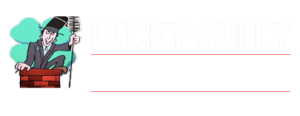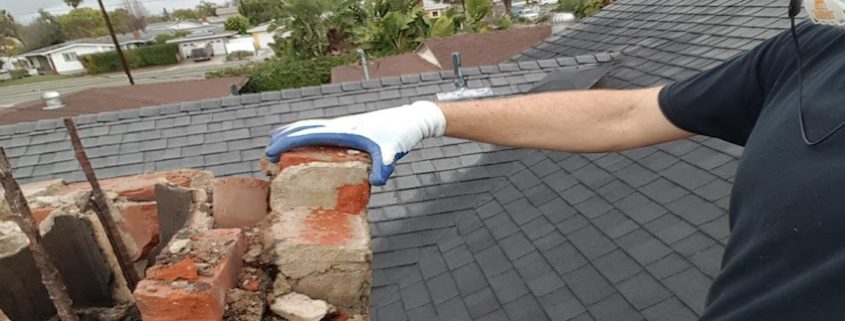Why Leaky Chimneys Are a Bigger Problem in Coastal Homes
If you live in a coastal area, you might not think twice about the wear and tear that saltwater, high winds, and humidity can have on your home’s exterior. However, when it comes to your chimney, these environmental factors can cause significant damage that worsens over time. Why leaky chimneys are a bigger problem in coastal homes involves a combination of harsh weather, salt exposure, and the constant moisture that plagues coastal regions.
While chimney leaks are a concern for homeowners everywhere, coastal properties face additional challenges that make addressing these issues a top priority. These leaks, if ignored, can lead to mold, structural damage, and even fire hazards, resulting in costly repairs and safety risks. Luckily, with proactive measures and regular maintenance from experts like Lucky Sully Chimney Sweep, you can prevent these dangers and keep your chimney functioning properly.
In this article, we’ll explore why coastal homes are especially vulnerable to chimney leaks, the potential damages caused by ignoring the issue, and how to protect your home from the long-term effects of water damage. We’ll also dive into why it’s essential to work with professionals who understand how Leaky Chimney Repair services can prevent further damage and help you avoid costly repairs.
The Coastal Environment: A Challenging Factor for Chimneys
Living near the coast offers stunning views and breezy weather, but it also comes with its own set of challenges for homeowners. The saltwater in the air, combined with humidity and harsh weather, accelerates the deterioration of chimney components, especially if they are not properly maintained. To understand why coastal homes are at greater risk, let’s break down the factors that make chimneys more prone to leaks:
Saltwater and Corrosion
Saltwater is the number one enemy of metal, and in coastal environments, it’s something chimneys constantly battle. Saltwater can be carried by the wind and form a fine mist that coats your chimney’s metal components, such as the cap, damper, and flue. Over time, this exposure causes rust and corrosion, leading to a breakdown of these essential components. Once the metal parts begin to deteriorate, the seals can weaken, and water is able to infiltrate the chimney system. This is one of the primary causes of Leaky Chimney Repair needs in coastal homes.
Humidity and Frequent Rainfall
Coastal areas are typically much more humid than inland regions, and that extra moisture in the air can seep into your chimney, causing issues with both masonry and mortar. When moisture enters the chimney, it can slowly cause the materials to break down, resulting in cracks and water leaks. This constant exposure to humidity makes coastal chimneys more prone to water damage, increasing the likelihood of developing leaks that can result in costly repairs if left untreated.
High Winds and Severe Storms
Another major concern for coastal homes is the high winds that often come with oceanfront living. These gusty winds can do serious damage to your chimney’s exterior components, like the flashing, cap, and crown. In particularly strong storms, such as hurricanes or tropical storms, chimney caps can be dislodged, creating an opening for water to enter. The high winds can also cause debris to accumulate, blocking the flue or damaging the structure, which often leads to leaks.
The Hidden Dangers of Leaky Chimneys
A leaky chimney in any environment is a serious concern, but coastal homes face additional risks due to the constant exposure to moisture and salt. The real danger of ignoring a chimney leak is that it can lead to a variety of costly and hazardous situations. Let’s look at some of the most common dangers of leaky chimneys in coastal homes:
Water Damage and Mold Growth
Moisture entering your chimney can lead to significant water damage, especially when it seeps into the surrounding structure of the house. This damage can cause wooden beams to rot, the foundation to weaken, and masonry to crack and deteriorate. Furthermore, the moisture creates the perfect breeding ground for mold and mildew, which can spread throughout your home. Mold growth is not only a health risk, especially for those with respiratory conditions, but it can also be very costly to remove. Professional Leaky Chimney Repair services can prevent this kind of damage by addressing leaks early on.
Structural Integrity Compromise
Your chimney is designed to be a sturdy, long-lasting feature of your home. However, constant water infiltration due to leaks can significantly weaken its structure. Over time, water can cause the mortar that holds the bricks together to degrade, resulting in loose or crumbling masonry. A compromised chimney may begin to lean, making it unstable and even dangerous. For coastal homes, where weather patterns can accelerate the deterioration process, this problem can escalate quickly. Structural issues that result from leaky chimneys require costly repairs, but early intervention can often prevent a full collapse.
Fire Hazards
Chimney leaks don’t just pose water-related risks—they also create fire hazards. Water can cause creosote, the flammable buildup from burning wood, to become sticky and tar-like. When this happens, it can lead to blockages that create a fire risk inside your chimney. Even worse, water infiltration can affect the entire chimney system, allowing smoke and harmful gases like carbon monoxide to back up into your home. This can put your family at serious risk. Keeping your chimney leak-free is crucial for ensuring the safety of your home, especially in coastal regions.
How to Protect Your Coastal Home From Chimney Leaks
As a homeowner in a coastal area, it’s crucial to stay proactive about chimney maintenance. Identifying and addressing chimney leaks early on can prevent costly repairs and keep your home safe. Here are some steps you can take to protect your chimney:
Regular Inspections
The first step in preventing chimney leaks is scheduling regular inspections. This is especially important in coastal areas where harsh weather conditions are prevalent. A chimney expert can identify small issues before they escalate into major problems. Inspections should include checks for cracks in the masonry, corrosion of metal components, and the condition of the chimney cap and flashing. If you’re in need of Leaky Chimney Repair, don’t wait for the issue to worsen.
Upgrading to Durable Materials
If you live near the coast, it might be worth investing in materials that are more resistant to corrosion and wear. For example, stainless steel chimney caps and high-quality flashing can withstand the elements better than traditional materials. These upgrades will help protect your chimney from rust and water damage, reducing the likelihood of leaks in the future.
Prompt Repairs and Sealant Application
If you notice any signs of water damage or leaks, it’s important to address them immediately. Sealing cracks and applying waterproofing agents to your chimney can help prevent moisture from infiltrating. Regular maintenance and prompt Leaky Chimney Repair services can extend the life of your chimney and prevent more expensive repairs in the future.
Conclusion
Owning a coastal home comes with many benefits, but it also means being aware of the unique challenges posed by the environment. Leaky chimneys are a bigger problem in coastal homes because of the constant exposure to salt, humidity, high winds, and heavy rains. These factors can quickly deteriorate your chimney’s structure and create severe issues, including water damage, mold growth, and fire hazards.
The best way to protect your home is by staying on top of chimney maintenance and repairs. Regular inspections and prompt action when issues arise can save you from costly and dangerous consequences. At Lucky Sully Chimney Sweep, we specialize in Leaky Chimney Repair services, ensuring that your chimney remains safe and efficient, even in the harshest coastal conditions.
FAQs
How often should I have my chimney inspected in a coastal area?
It’s recommended to have your chimney inspected at least once a year, especially in coastal areas where the weather can accelerate deterioration.
Can saltwater really damage my chimney?
Yes, saltwater can corrode metal components, like the chimney cap and flue, leading to leaks and rust over time.
What are the signs of a leaky chimney?
Common signs include water stains around the chimney, musty odors, rusted components, and cracks in the masonry.
What should I do if I notice a chimney leak?
Contact a professional chimney service like Lucky Sully Chimney Sweep as soon as possible for an inspection and repair.
Is chimney waterproofing necessary for coastal homes?
Yes, waterproofing can significantly extend the life of your chimney and protect it from the damaging effects of moisture and salt.









